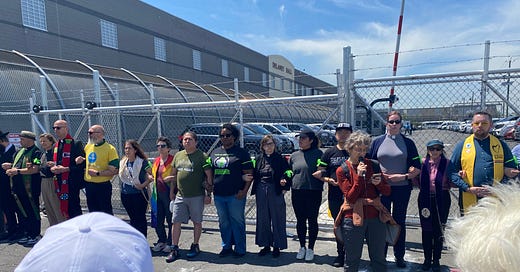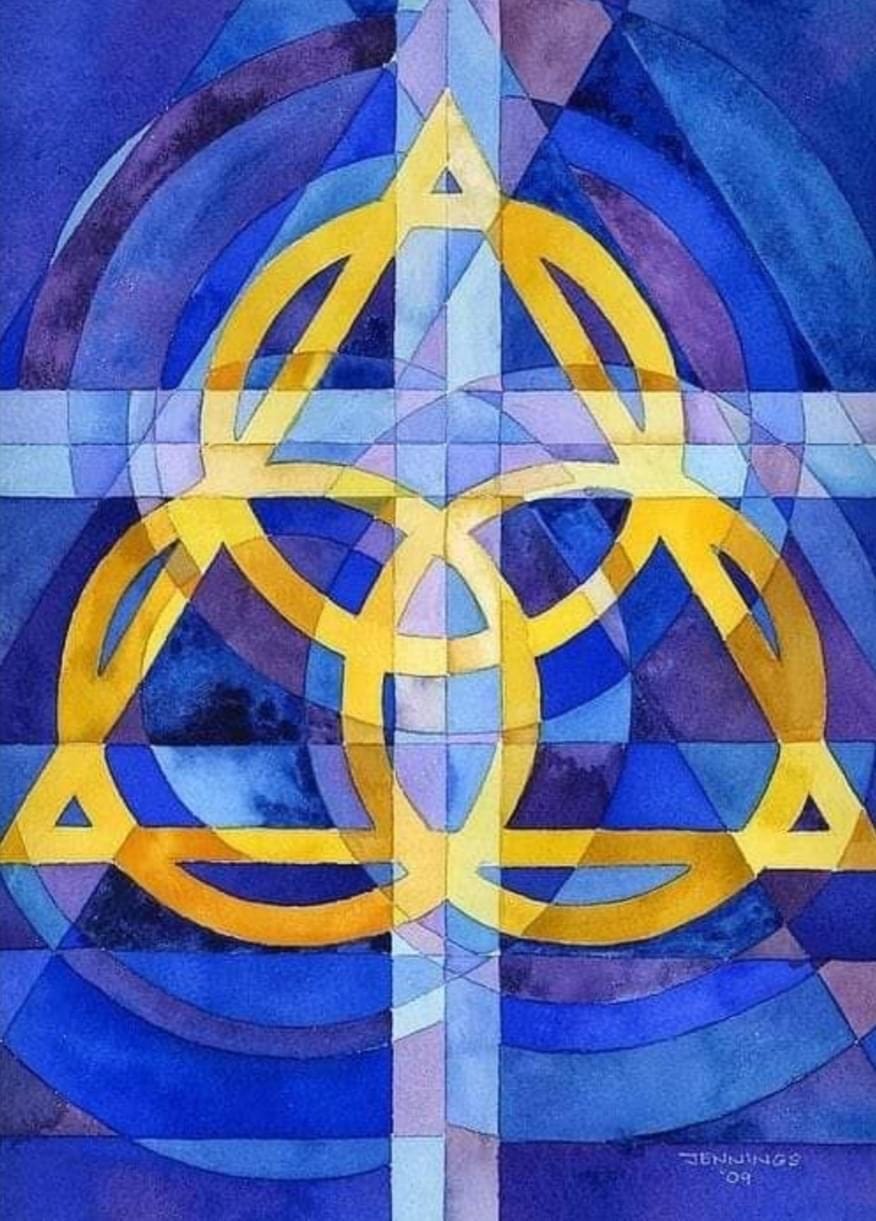“The mature and well-balanced person, standing firmly with both feet on the earth, who has never been lamed and broken and half-blinded by the scandal of life, is as such the existentially godless person.” (Karl Barth, The Epistle to the Romans)
I remember at seven years old standing in our driveway on Battle Hill in Hartsdale, NY when things were falling apart, going terribly wrong in our family and my parents marriage, and suddenly being surrounded, held, filled, embraced by an unconditional Love, surprising Joy. The Peace was without end. I thought whatever I do or seek in my life, I want this Peace.
First Things First
Later I read Paul Tillich’s book, The Courage to Be, and William Sloan Coffin’s, The Courage To Love. There’s also Rollo May’s, The Courage to Create. These are good books, especially the first two. Yet the proof of the pudding is in the living — creating, being, loving—existentially while actually living on the boundary between death and life.
I wish life was all Easter, so to speak. But it’s not. Joy and sorrow, strangely, come together, cannot be segregated. If you reject the tears, you lose the joy. Courage to be, to create, to love, is grace under pressure. Life with blood and water limitations.
Creativity in living and integral being involves wild grace and acceptance, gritty agency and solidarity with human suffering, taking up the anxiety of non-being within ourselves and transmuting it, nevertheless, in spite of messy blood and water limitations. Nouwen calls it wounded healing. The crucified One lives. It summons forth streams of invincible summer, imago dei, within and without—through all four seasons of life—including winter.
For many it is winter. The forces of negation—white supremacy, mafia capitalism, gender violence, ecological degradation, unjust war, threats of AI—are mounting up.
How shall we sing God’s song in a strange land?
“If the bird’s gift is song, then it has a responsibility to greet the day with music. It is the duty of birds to sing and the rest of us receive the song as gift. What is our gift? And how shall we use it?” (Robin Wall Kimmerer)
Faith and love, persevering compassion and creativity in witness nevertheless is connected to the scandal of real suffering and transcendence. Eschatology and ethics, art and Artist, wonder and willingness come together in real time.
“God is always relating, within God’s self, and beyond God’s self, a love and joy so unimaginable that it cannot be contained. And we are invited to participate in that love and joy of God through Jesus Christ in the Spirit. It is an invitation into relationship...” Josep Martinez-Cubero
Look around at the exemplars, including yourself. In I-Thou relationship.
Friends deepening and expanding life in wild difference and rhythm—witnessing to liminality and liberation, hard truth and beauty—in spite of great suffering. I am thankful for these many-splendored songs of sinner-saints, near and far, who freely give gifts nevertheless. I receive glimmering shards of truth in gratitude. They include creative non-violence, writing, poetry, music, sculpture, dance, painting, organizing, dialogue, twelve-step recovery, prayer.
As Flannery O Connor writes, “The artist prays by creating.”
Dare to pray, discover the artist and Artist, without and within. Throw off the shame; reject the rejection. Keep freedom fighting.
Including—Cry me a River.
I recall another time on Battle Hill walking up the steepest part of Alexander Avenue on a late winter day, kicking blocks of hard, dirty ice with the heel of my black Keds sneaker—into melting mushy fragments, joining trickles, rivlets, into streams of melting ice water flowing downhill, fresh, in the early spring Sun, to the River to the Ocean.
The creative work of Spring.
And hear again this witness from Suleika Jaouad.
“… I’ll be in treatment for the rest of my life. In circumstances like mine, people often advise you to live each day as if it’s your last. It’s the old carpe diem ethos, one that dovetails so neatly with the American idea of striving: Pack in as much in as you can, wring as much as possible from every moment. But it feels so pressurized to think that way, and chaotic too. If we literally lived each day as if it were our last, we’d all be draining our bank accounts to go on wild bucket-list adventures—and maybe robbing the bank while we were at it. So rather than living every day as if it’s my last, I’ve shifted to a gentler approach of living every day as if it’s my first. I want to wake up and meet the day with the wonder of a newborn, to cultivate childlike qualities like curiosity and play.
Thinking this way has created another shift—from a sense of scarcity to abundance. You might be familiar with the passage from the Gospel of Matthew where Jesus says, “Consider the lilies of the field, how they grow. They don't toil, neither do they spin.” He goes on to tell his followers not to worry about tomorrow—not about what they will eat or drink or what clothes they will wear, for God will take care of them.
I do not pretend to be a Bible scholar, but I like reading the word “spin” here in two ways: as preparing cloth for a garment, but also spinning in anxiety. When I think of how fleeting life is, I begin to spin. I feel the old urge to make plans, because if I have a plan, it eases my fear of the future and all its uncertainties. But I do not want to spin. I do not want to worry about tomorrow or the next day or the day that will be my last, however soon or distant that is.
And the best defense I have found against spinning is simple. It’s channeling that innate, dare I say, God-given, even God-like trait in every human: creativity. It’s making something where there was nothing before.”








